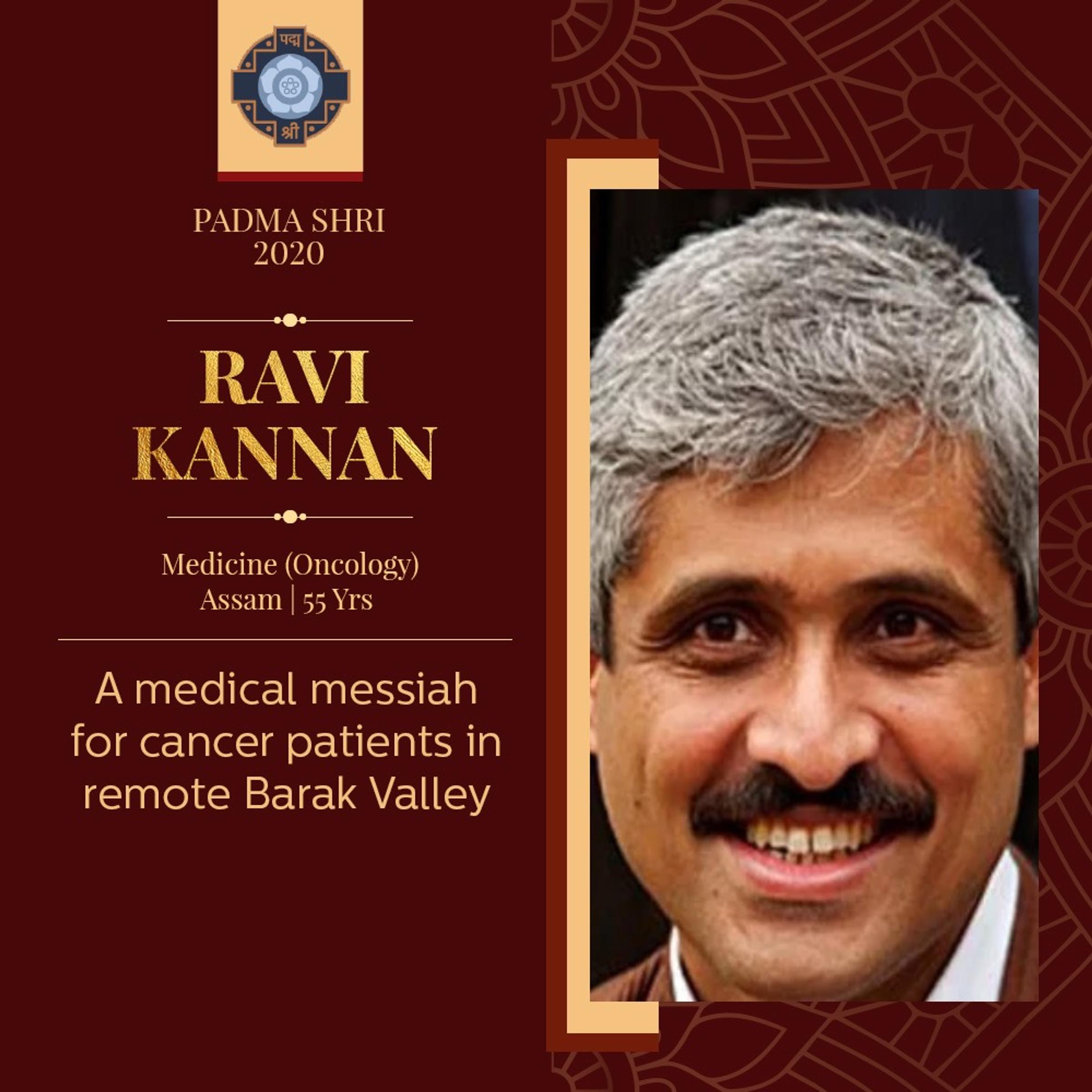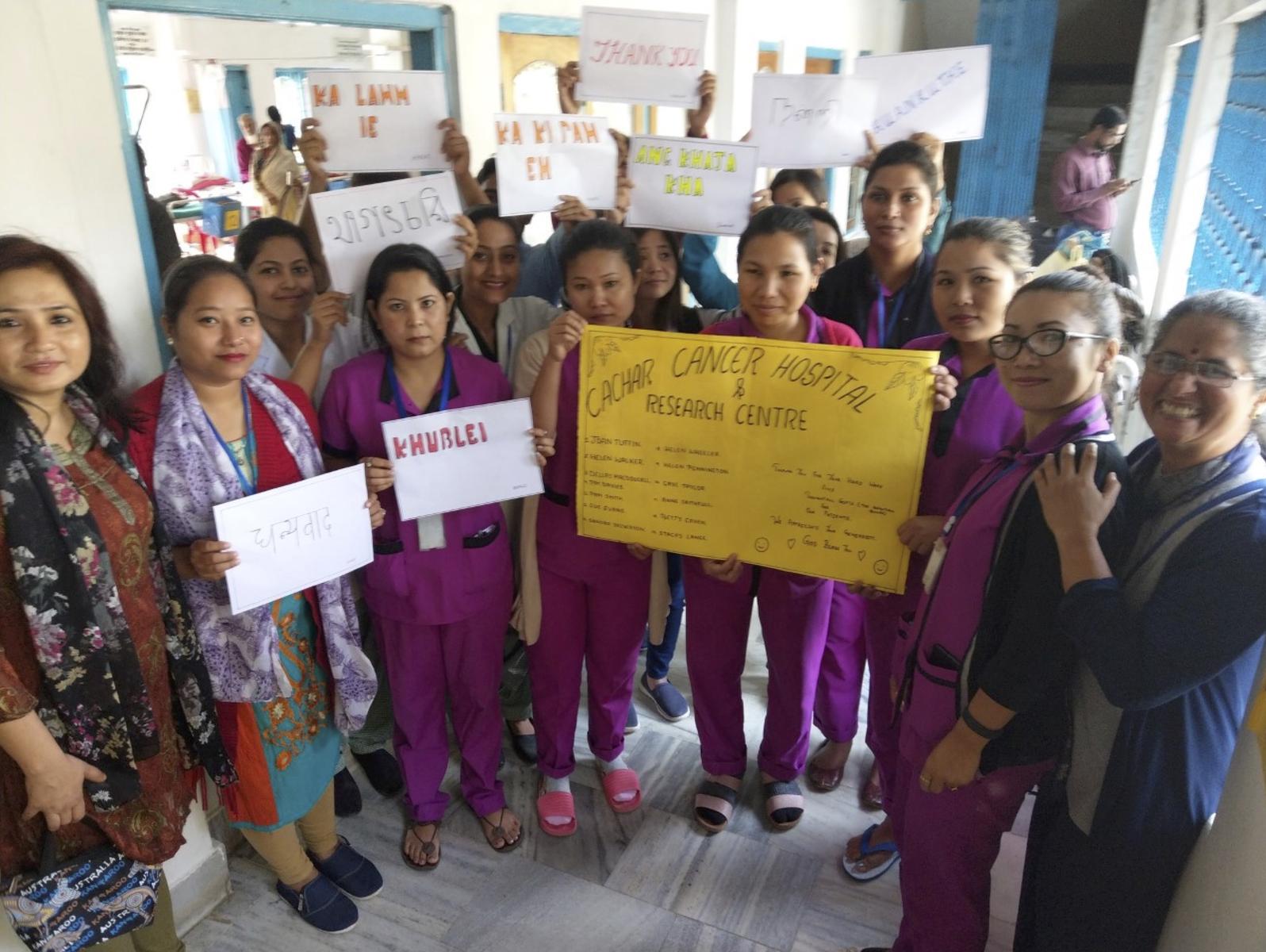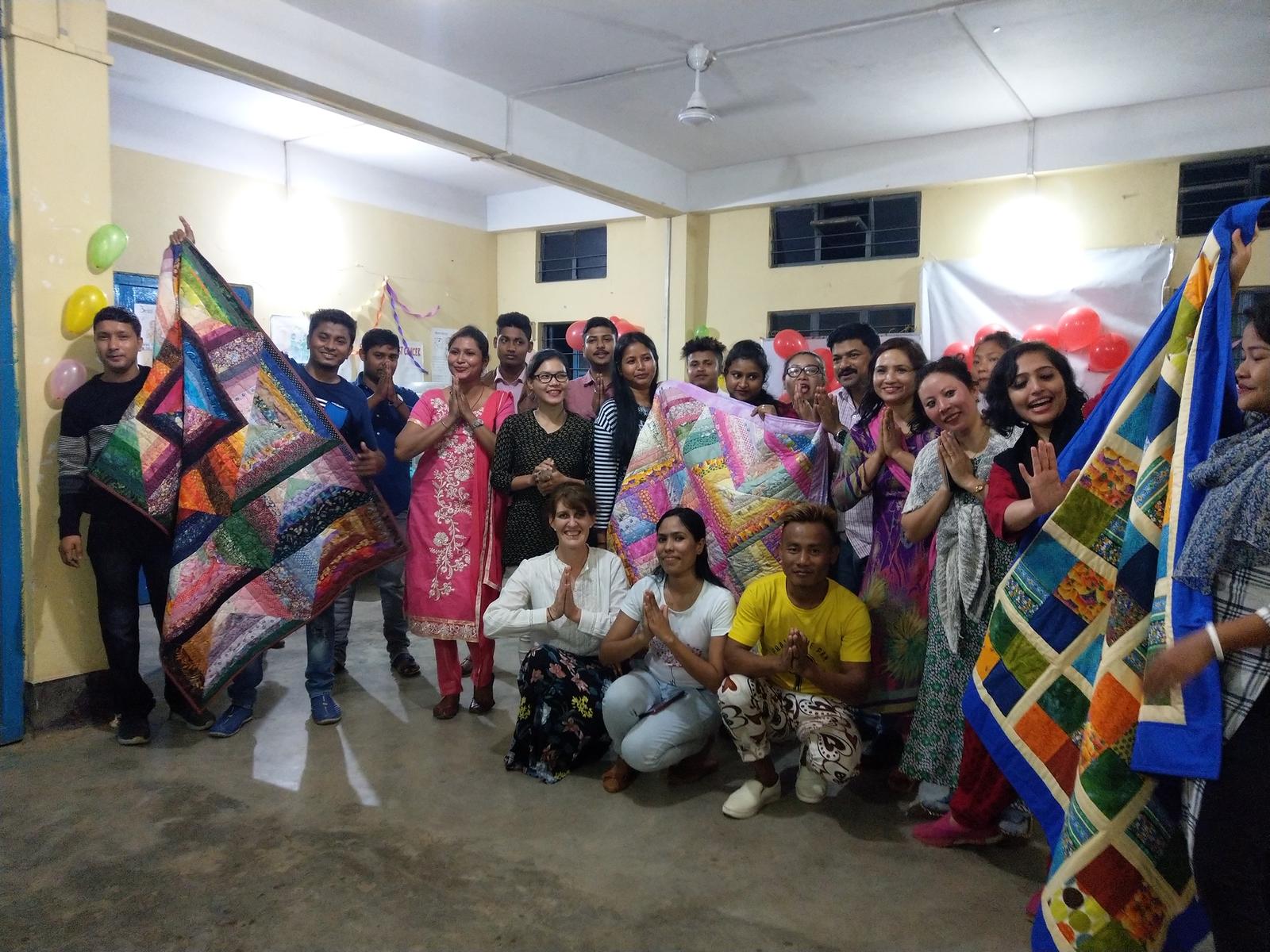Dr Ravi Kannan

Recipient of Padma Shri Award 2020
As many of our APLI friends would know, Ravi Kannan runs the Cachar Cancer Hospital and Research Centre in Silchar, Assam. The Padma Awards, one of the highest civilian awards in India, are conferred in three categories in various disciplines. The Padma Shri is awarded for distinguished service in any field by the President of India.
A head and neck surgical oncologist, in 2006, he visited the valley in the remote north-east of the country for the first time on the request of a colleague. The then director of Cachar Cancer Hospital asked if he would like to shift there permanently. After much deliberation and discussion with his family, he moved from Chennai to Assam in 2007.
In his words, ‘We did not have a roadmap of what needs to be done. We slowly developed a system. When I started here, we had 23 staff members and now we have 350. At least 95% of (the patients) used to have cancer in advanced stages. But now, that’s reduced to 70%. There is a change … but an extremely slow one.’
‘I thought with free food and shelter people will be happy to receive treatment. In many cases treatment was free too. So it was good. Or so I thought.’
In 2011, results of an in-house study crashed all hopes. ‘We found 58% of people who tested positive for cancer didn’t return for treatment. Only 28% completed treatment. People were dying in pain and agony. If they have to come for treatment, they need to be accompanied by a family member, who will have to lose their wages and the family will starve.’
That’s when the hospital decided to offer jobs to patients and their attenders. Initially, it was planning jobs like tailoring and candle making, but the hospital found that people needed training.
‘So we offered them jobs that required unskilled labour. They could clean wards or water plants for Rs100 a day. Some would do plumbing and carpentry.’
At the hospital, patients have to pay a registration fee of Rs 500 and they get treatment for their lifetime. The fee is charged to ensure that they come for follow-up. The patients are provided accommodation and food. Since most of the patients are daily wage labourers, family members and caregivers who accompany them are given jobs at the hospital. With these sorts of measure, Dr Kannan and his team ensure that families bring their ailing members for treatment.
On receiving the award, Dr Kannan said, ‘If the progress made in science does not reach the common man, then it is a failure of the system.’


